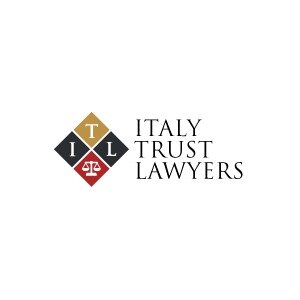Best Inheritance Law Lawyers in Florence
Share your needs with us, get contacted by law firms.
Free. Takes 2 min.
List of the best lawyers in Florence, Italy
1. About Inheritance Law in Florence, Italy
Inheritance law in Florence is governed by national rules of the Italian Civil Code, applied uniformly across Italy. The city itself does not create separate laws, but local probate matters occur under the jurisdiction of the courts in Florence and the regional context of Tuscany. The core framework covers how assets pass when someone dies, who inherits, and how debts are handled.
Key concepts include legittima, which protects certain heirs by reserving a portion of the estate for them, and testamentary freedom within the limits of the law. The process typically involves recognizing heirs, valuing assets, and transferring ownership through formal procedures. In Florence, as elsewhere in Italy, real estate and bank accounts will require administrative steps with national authorities and land registries.
Understanding the sequence from opening succession to eventual distribution helps residents avoid delays and disputes. Common steps include identifying heirs, filing a declaration of succession, inventorying assets, and completing the transfer of property to heirs through the appropriate registries and registries office. A skilled solicitor or attorney often coordinates these steps to ensure compliance and protect rights.
2. Why You May Need a Lawyer
Florence families frequently face concrete scenarios where legal guidance is essential. Consider these real world examples to understand when you should consult a solicitor for inheritance matters.
- A spouse disputes a will that appears to disregard the forced heirship requirements, claiming a larger share of the estate. A lawyer can assess the will against legittima and help pursue a correction or challenge if needed.
- Several siblings and a non-relative co-owner inherited different Florence properties. A solicitor can coordinate asset appraisals, resolve conflicting titles, and organize a fair division or buyout plan.
- The deceased owned property in Florence and abroad. You need cross jurisdiction guidance on how Italian inheritance rules interact with foreign laws and how to file declarations correctly.
- A surviving spouse wants to accept the inheritance with benefit of inventory to limit personal liability for debts. An attorney can guide the correct form of acceptance and the related accounting steps.
- There are disputes about a power of attorney or a contested guardianship that affected inheritance decisions. A legal professional can clarify who has standing and how to proceed in court.
- The heirs seek optimization of inheritance tax planning and exemptions. A solicitor can explain available deductions, how to structure transfers, and the timing of declarations.
In addition, Florence residents may face practical hurdles such as updating real estate records with the local land registry, coordinating with banks to close or transfer accounts, and handling digital assets. A qualified attorney or legal counsel can manage these tasks efficiently and reduce the risk of errors.
3. Local Laws Overview
Florence inherits the same national framework as the rest of Italy, but practical application and local administration play a big role. Here are two to three specific laws or regulatory concepts that govern Inheritance Law in Florence and in Italy more broadly.
- Codice Civile - Libro IV delle successioni: This is the principal body of law governing succession, including rules on how estates are distributed and the rights of heirs. It covers testamentary freedom within the bounds of legittima and the processes for declaring succession.
- Testamenti e tipologie di testamento: The Civil Code regulates how a will can be made, including public, private, andologous forms of testament. These rules determine how a will is created, witnessed, and validated in Florence and across Italy.
- Imposta di successione e donazione (TUIR framework): Inheritance tax is governed by the national tax regime that applies to transfers on death or donation of assets. The rules include exemptions and tax rates determined by relationship to the deceased and the value of assets, with administration through the Agenzia delle Entrate and related authorities.
“Italy follows the principle of legittima, protecting certain heirs with a reserved portion of the estate.”
Source: Normattiva and Agenzia delle Entrate materials on succession and taxation (official government sources).
Recent practical trends in Florence include greater use of telematic submissions for declarations of succession and enhanced coordination between civil law and tax authorities. While the core rules remain stable, administrative processes are gradually becoming more digital to reduce delays in estate settlements.
4. Frequently Asked Questions
What is inheritance law in Italy and how does it apply in Florence?
Inheritance law in Italy governs transfer of a deceased person’s assets. In Florence, as in the rest of Italy, it requires adherence to national rules on heirs, legittima, wills, and taxation.
What is legittima and who qualifies as a forced heir in Florence?
The legittima protects certain heirs by reserving a portion of the estate for them. In most cases these heirs include spouses and children; other relatives may be considered in specific circumstances.
What is a declaration of succession and who must file it?
A declaration of succession is a formal statement listing heirs and assets. It must be filed with the national tax authority after death, often within 12 months for Italian assets.
How do I start a probate in Florence?
Begin by gathering death certificates, documents proving relationships, wills if any, and asset records. Contact a Florence inheritance lawyer to coordinate filings with Agenzia delle Entrate and the local registry.
What is the difference between intestate succession and testamentary succession?
Intestate succession occurs when there is no valid will; heirs follow statutory rules. Testamentary succession uses a will to distribute assets according to the decedent’s wishes, within legal limits.
Do I need a lawyer to contest a will in Florence?
Contesting a will requires demonstrating that the will violates legittima or was created under fraud or incapacity. A lawyer can assess grounds and represent you in court.
How long does a typical inheritance process take in Florence?
Timeline varies with complexity, debt resolution, and asset types. Simple estates may settle in 6-12 months; complex cases, including real estate, can take longer.
What are typical costs to hire an inheritance lawyer in Florence?
Fees depend on the case complexity, the attorney, and whether work is billed hourly or a flat rate for defined tasks. Ask for a written engagement letter and fee estimate upfront.
Is there a difference between a solicitor and an attorney in Italy?
In Italy, the term solicitor is commonly used to mean a legal professional who provides advice and drafts documents. An attorney or avvocato represents clients in court and handles litigation.
Should I consider a will or create a will if I live in Florence?
Having a will can clarify your wishes and help reduce disputes. A lawyer can help you choose a will type that aligns with your family situation and assets in Italy.
What happens to overseas assets when someone dies in Florence?
Assets located outside Italy may be subject to foreign inheritance rules in addition to Italian law. AFlorence inheritance lawyer can coordinate cross-border issues with foreign jurisdictions.
Do I need to file a declaration of succession if all assets are in Tuscany?
Yes, assets located in Italy are generally subject to Italian declaration requirements. A lawyer can confirm which forms to file and where to submit them.
5. Additional Resources
- Agenzia delle Entrate - Official government site for taxation, including succession and donation rules, exemptions, and filing requirements. https://www.agenziaentrate.gov.it/portale/
- Normattiva - Official portal for Italian legislation, including the Codice Civile and succession provisions. https://www.normattiva.it/
- Consiglio Nazionale Forense (National Bar Association) - Professional guidance and standards for lawyers in Italy. https://www.cnf.it/
6. Next Steps
- Identify your goal and gather key documents within 7 days (death certificate, will if any, list of assets and debts).
- Consult a Florence inheritance lawyer for an initial assessment within 1-2 weeks of gathering documents.
- Ask for a written engagement letter and fee estimate before any work begins to avoid surprises.
- Have the lawyer review any existing will and analyze legittima implications within 2-3 weeks.
- File the declaration of succession with Agenzia delle Entrate following your lawyer’s guidance, typically within 12 months for Italian assets.
- Coordinate asset valuation and transfer plans with the lawyer and relevant registries in Florence.
- Develop a long term plan for tax efficiency and estate planning for surviving family members with your solicitor.
Lawzana helps you find the best lawyers and law firms in Florence through a curated and pre-screened list of qualified legal professionals. Our platform offers rankings and detailed profiles of attorneys and law firms, allowing you to compare based on practice areas, including Inheritance Law, experience, and client feedback.
Each profile includes a description of the firm's areas of practice, client reviews, team members and partners, year of establishment, spoken languages, office locations, contact information, social media presence, and any published articles or resources. Most firms on our platform speak English and are experienced in both local and international legal matters.
Get a quote from top-rated law firms in Florence, Italy — quickly, securely, and without unnecessary hassle.
Disclaimer:
The information provided on this page is for general informational purposes only and does not constitute legal advice. While we strive to ensure the accuracy and relevance of the content, legal information may change over time, and interpretations of the law can vary. You should always consult with a qualified legal professional for advice specific to your situation.
We disclaim all liability for actions taken or not taken based on the content of this page. If you believe any information is incorrect or outdated, please contact us, and we will review and update it where appropriate.










